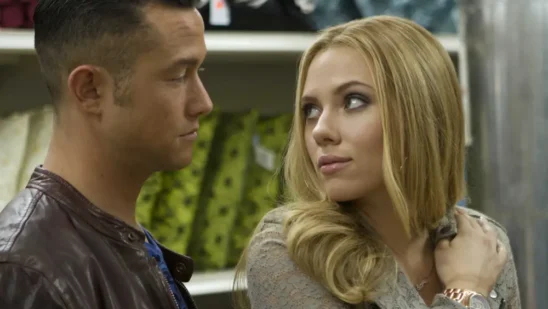
On the surface, Don Jon, released in September of this year, is a fairly raunchy rom-com. Yes, the main character is addicted to pornography; he does meet a girl, attempt to woo her, and (spoiler alert), end up finding another girl in the process, but the film is not what you might expect. It isn’t even fair to lump it into the “romantic comedy” category or to call it “raunchy”. Let’s take a deeper look at Don Jon:
There’s a difference between the kind of raunchy that’s done strictly for laughs and the kind of raunchy that is shown to be realistic, to imitate life. That kind of raunchy, the kind of raunchy evident in Don Jon, is nothing short of art.
While less astute audience members are sure to get giggles from Don Jon’s pornography addiction, his “picking up the ladies” techniques in the club, and his outright use of women, those who are willing to dig a bit beneath the surface will find that these traits and actions aren’t shown just for laughs. No, director Joseph Gordon-Levitt, who also stars in the title role, shows the viewer these things to make him or her realize the true sadness and vast emptiness of Don Jon’s life.
His pornography addiction belies an inability to make connections with others; the way he treats women speaks to the same, and the scenes with his quirky family showcase an interesting dynamic. Everyone in the family is disconnected; each member lives completely for himself or herself, as evidenced by the constantly-on-the-cell-phone sister, the watching-the-game dad, and the in-her-own-little-fantasy-world mother. Having a family like that explains why Don Jon is the way he is, brilliantly and almost subconsciously creating a more sympathetic character.
When Don Jon meets Scarlett Johansson’s character, Barbara, she is, no surprise, as self-centered and emotionally void as he is. The good news, though, is that Don Jon does at least try to form a true connection with her, only to ultimately realize that two broken people who think only of themselves cannot have a meaningful connection; the only relationship such a pair can have, as Don Jon so eloquently puts it, is “one-sided.”
Instead of being devastated from the fallout of the relationship, Don Jon takes what he has learned from the fleeting connection and applies it to his life, thanks in large part to a budding friendship with his classmate Esther (Julianne Moore), who has just lost her family in a tragic accident.
The accident has left her unable to give of herself fully, but that’s okay; Don Jon has some learning to do about what giving means and, as the film draws to a close, the early signs of his change are evident; he joins others at the gym when he would usually workout alone and stops following his rigid, self-imposed schedule. He even desires a closer spiritual connection, as evidenced by his probing questions in the church confessional.
Literary in quality and full of rich symbolism and strongly developed characters, Don Jon is not the ballsy comedy it appears to be at first glance. Instead, it is a fascinating musing on the selfishness of today’s culture and the often unrealized effect it has on all of our lives.
If you’ve already seen the flick, try watching it with a fresh perspective and, if you haven’t, don’t go in expecting a stupid comedy. “Don Jon” is brilliant and multi-layered enough that you’ll find what you’re looking for–be it a few laughs or a good soul-searching–so your experience will be largely determined by your expectations.